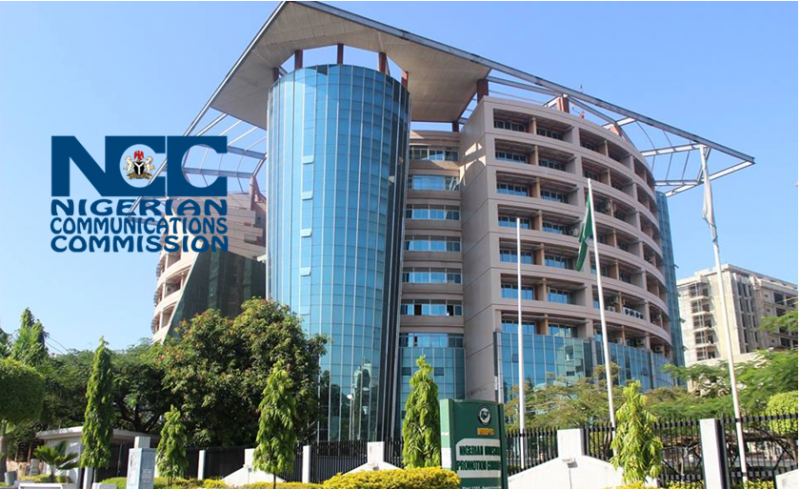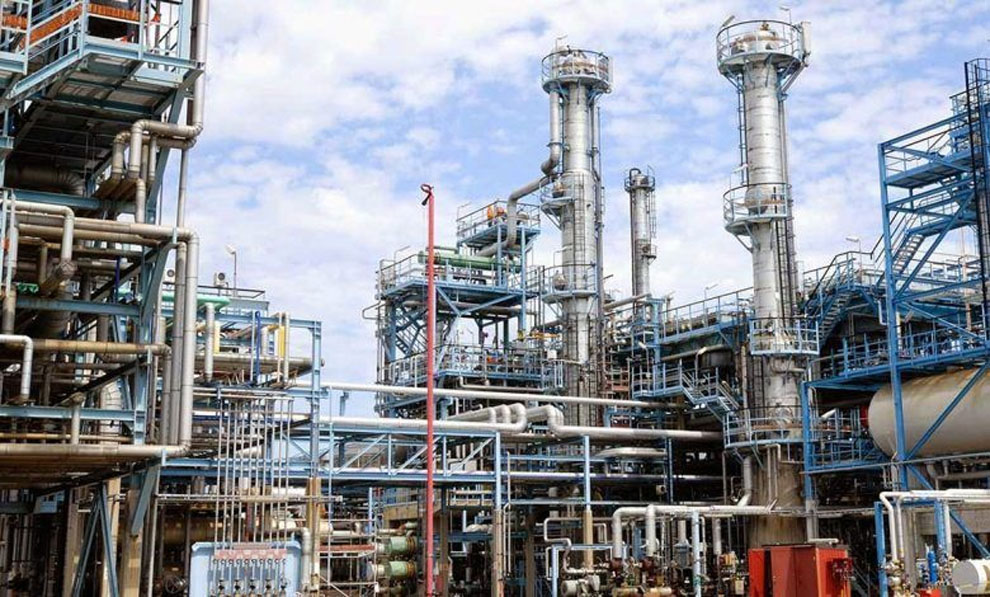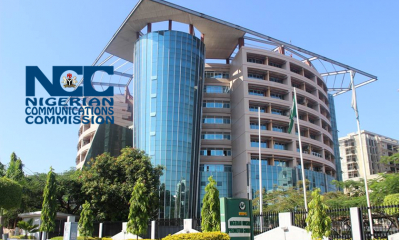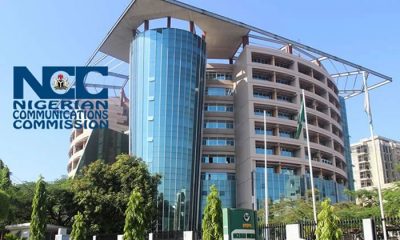Business
Again, NCC alerts of hacking group targeting Telcos, ISPs

The Nigerian Communication Commission has again notified the public of the existence of another hacking group orchestrating cyberespionage in the African telecoms space.
The commission in a statement said an Iranian hacking group was in the prowl to hack the telecoms sector on a massive level.
The statement titled, ‘Again, NCC alerts of hacking group targeting Telcos, ISPS’ and signed by NCC Director, Public Affairs, Dr Ikechukwu Adinde, read in full:
“In keeping with its commitment to continuously keep stakeholders in the country’s telecoms sector informed, educated and protected, the Nigerian Communications Commission (NCC) wishes to, once again, notify the public of the existence of another hacking group orchestrating cyberespionage in the African telecoms space.
READ ALSO:
- Hijab: Crisis looms in LAUTECH over alleged humiliation of student [VIDEO]
- Security forces flush out Biafra agitators from Bakassi
- N100m Gift: If You Have To Compel People To Celebrate You, You’re Nothing, Cynthia Morgan Tells Davido
“An Iranian hacking group known as Lyceum (also known as Hexane, Siamesekitten, or Spirlin) has been reported to be targeting telecoms, Internet Service Providers (ISPs) and Ministries of Foreign Affairs (MFA) in Africa with upgraded malware in a recent politically motivated attacks oriented in cyberespionage.
“Information about this cyber attack is contained in the latest advisory issued by the Nigerian Computer Emergency Response Team (ngCERT). The ngCERT rated the probability and damage level of the new malware as high.
“According to the advisory, the hacking group is known to be focused on infiltrating the networks of telecoms companies and ISPs. Between July and October, 2021, Lyceum was implicated in attacks against ISPs and telecoms organisations in Israel, Morocco, Tunisia, and Saudi Arabia.
“The advanced persistent threat (APT) group has been linked to campaigns that hit Middle Eastern oil and gas companies in the past. Now, the group appears to have expanded its focus to the technology sector. In addition, the APT is responsible for a campaign against an unnamed African government’s Ministry of Foreign Affairs.
“By the attackers’ mode of operation, Lyceum’s initial onslaught vectors include credential stuffing and brute-force attacks. So, once a victim’s system is compromised, the attackers conduct surveillance on specific targets. In that mode, Lyceum will attempt to deploy two different kinds of malware: Shark and Milan (known together as James).
READ ALSO:
- More Nigerian youths are committing suicide, lawmakers lament
- Eight killed, vehicles burnt as speeding tanker, truck collide in Ogun
- Train services suspended as railway workers down tools
- Eto’o Submits Candidacy For Cameroon FA Presidency
“Both malware are backdoors. Shark, a 32-bit executable written in C# and .NET, generates a configuration file for domain name system (DNS) tunneling or Hypertext Transfer Protocol (HTTP) C2 communications; whereas Milan – a 32-bit Remote Access Trojan (RAT) retrieves data.
“Both are able to communicate with the group’s command-and-control (C2) servers. The APT maintains a C2 server network that connects to the group’s backdoors, consisting of over 20 domains, including six that were previously not associated with the threat actors.
“According to reports, individual accounts at companies of interest are usually targeted, and then once these accounts are breached, they are used as a springboard to launch spear-phishing attacks against high-profile executives in an organization. The report suggests that not only do these attackers seek out data on subscribers and connected third-party companies, but once compromised, threat actors or their sponsors can also use these industries to surveil individuals of interest.
“However, to guard against this kind of threats, the NCC wishes to re-echo ngCERT reports that multiple layers of security in addition to constant network monitoring is required by telecom companies and ISPs alike to stave off potential attacks.
“Specifically, telecom consumers and the general public are advised to:
- Ensure the consistent use of firewalls (software, hardware and cloud firewalls).
- Enable a Web Application Firewall to help detect and prevent attacks coming from web applications by inspecting HTTP traffic.
- Install Up-to-date antivirus programmes to help detect and prevent a wide range of malware, trojans, and viruses, which APT hackers will use to exploit your system.
- Implement the use of Intrusion Prevention Systems that monitors your network.
- Create a secure sandboxing environment that allows you to open and run untrusted programs or codes without risking harm to your operating system.
- Ensure the use of virtual private network (VPN) to prevent an easy opportunity for APT hackers to gain initial access to your company’s network.
- Enable spam and malware protection for your email applications, and educate your employees on how to identify potentially malicious emails.
For further technical assistance, contact ngCERT on [email protected].
“The NCC, as the operator of the telecom sector’s cyber threat response centre (CSIRT), hereby reiterates its commitment active surveillance and monitoring of cyber activities in the sector and will always keep stakeholders in Nigeria’s telecommunications sector updated on potential threats within the cyber space. This is to ensure that the networks that deliver essential services are safe and that telecom consumers are protected from being victims of cyber attacks.”
The Eagle
Business
Naira exchanges N1,650/$ in parallel market

Naira exchanges N1,650/$ in parallel market
Yesterday, the Naira appreciated N1,650 per dollar in the parallel market, compared to N1,655 on Monday.
Similarly, the Naira appreciated to N1,535 per dollar in the official foreign exchange market.
Data published by the Central Bank of Nigeria, CBN, showed that the exchange rate for the Nigerian Foreign Exchange Market (NFEM) fell to N1,535 per dollar from N1,537 per dollar on Monday, indicating N2 appreciation for the naira.
READ ALSO:
- Tension as Anambra community union asks monarch to stop Ofala Festival
- Exchange rate ends 2024 at N1,535/$1, marking a 40.9% depreciation
- Lagos govt clears traders from rail tracks at Bolade, Oshodi
Consequently, the margin between the parallel market and NFEM rate narrowed to N115 per dollar from N118 per dollar on Monday.
Naira exchanges N1,650/$ in parallel market
Business
Exchange rate ends 2024 at N1,535/$1, marking a 40.9% depreciation

Exchange rate ends 2024 at N1,535/$1, marking a 40.9% depreciation
The exchange rate between the naira and the dollar ended the year at N1,535/$1 representing a 40.9% depreciation for 2024.
The official exchange rate between the naira and dollar closed in 2023 at N907.11/$1 thus depreciating by 40.9% for the year which compares to a 49.1% devaluation at the end of 2023.
READ ALSO:
- Lagos govt clears traders from rail tracks at Bolade, Oshodi
- Four countries that won’t celebrate New Year
- Social media abuzz over Fayose claim of N50m donation to VeryDarkMan’s NGO
Nigeria introduced several foreign exchange policies in 2024 as the central bank expanded on market-friendly forex policies to attract foreign investors.
Meanwhile, on the parallel market where the exchange rate is sold unofficially, the naira exchanged for N1,660 to the dollar when compared to N1,215/$ according to Nairametrics tracking records. This represents a 26.8% depreciation.
Exchange rate ends 2024 at N1,535/$1, marking a 40.9% depreciation
Business
Warri refinery: Marketers hopeful of further petrol price drop

Warri refinery: Marketers hopeful of further petrol price drop
There was excitement on Monday as the Warri Refining and Petrochemical Company (WRPC) commenced partial production.
This is coming after nearly a decade of dormancy as the 125,000 barrels per day refinery was confirmed to be working at 60 per cent capacity, according to the Nigerian National Petroleum Company Limited (NNPCL).
The refinery, inactive since 2015 due to prolonged repairs, reportedly began refining activities last Saturday at its Area 1 plant, where crude oil was successfully pumped into the system.
This was coming about a month after the commencement of operations at the 60,000-barrel-per-day-old Port Harcourt Refinery.
The NNPCL Group Chief Executive Officer, Mele Kyari, announced the resumption of operation at the Warri Refinery during a tour of the facility on Monday.
Kyari was seen in a video posted by Channels TV addressing a tour team, which included the Chief Executive Officer of the Nigerian Midstream and Downstream Petroleum Regulatory Authority, Farouk Ahmed.
READ ALSO:
- Catholic priest sentenced to 11 years for criticising his president
- Warri refinery now operational, doing 125,000bpd – NNPCL boss
- Kwankwaso says no power-sharing agreement with Atiku, Obi
Earlier, Kyari explained that the inspection aimed to show Nigerians the level of work completed so far.
He said though the repairs on the facility were not 100 per cent complete, operations had commenced.
He said, “We are taking you through our plant. This plant is running. Although it is not 100 per cent complete, we are still in the process. Many people think these things are not real. They think real things are not possible in this country. We want you to see that this is real.”
With the addition of Warri Refinery, Nigeria’s refining capacity has further increased with marketers anticipating a further reduction in price of premium motor spirit (PMS).
The 650,000-barrel Dangote Refinery has commenced production in addition to the Port Harcourt Refinery with a total capacity of 210,000 barrels per day (bpd) comprising 60,000 bpd for the old plant and 150,000 bpd for the new plant.
It’s good for business, prices may reduce – Marketers
Major Energy Marketers’ Association of Nigeria (MEMAN) and the Independent Marketers Association of Nigeria (IPMAN) welcomed the revival of the Warri refinery, saying it would deepen competition, diversify supply and ultimately resort to price reduction.
Executive Secretary of MEMAN, Clem Isong in a chat with our correspondent stated that the Warri Refinery is the shortest route to the North, describing its revival as good news.
“The market becomes more competitive and we are diversifying supply,” he said.
On whether it would lead to price reduction, he stated, “There are many factors that affect price, competition is always good and you can always get your product at the best price.”
National Public Relations Officer of IPMAN, Alhaji Olanrewaju Okanlawon in a chat with our correspondent said, “If there is excess supply, it will keep bringing down the price. We now run a free market and it is about demand and supply. It will continue bringing down the price. It will decongest Lagos.”
Energy expert, Dr. Ayodele Oni said the resumption of Warri Refinery would boost the local refining capacity in addition to enabling the country to sell to other neighbouring countries.
“We can refine more and even have some to sell. We now stop being hewers of wood and drawers of water. We add value to what we produce and can make/ do more with our base resources. This is very pleasant news,” he said.
Warri refinery: Marketers hopeful of further petrol price drop
-

 Politics3 days ago
Politics3 days agoGbajabiamila speaks on his rumoured Lagos governorship ambition
-

 metro3 days ago
metro3 days agoFarotimi to pursue disbarment over arrest, defamation allegations
-

 Business2 days ago
Business2 days agoReal reason Dangote, NNPC drop petrol price — IPMAN
-

 Health2 days ago
Health2 days agoABU Teaching Hospital will begin kidney transplant in 2025 – CMD
-

 Sports1 day ago
Sports1 day agoAnthony Joshua prostrates before Governor Abiodun during Ogun visit
-

 metro3 days ago
metro3 days agoEl-Rufai accuses Tinubu govt of Yoruba agenda, Reno Omokri reacts
-

 metro3 days ago
metro3 days agoNigerian govt urged to intervene in Mozambique post-election violence
-

 metro3 days ago
metro3 days agoAdeleke presents staff of office to new Owa-Obokun amid protest











